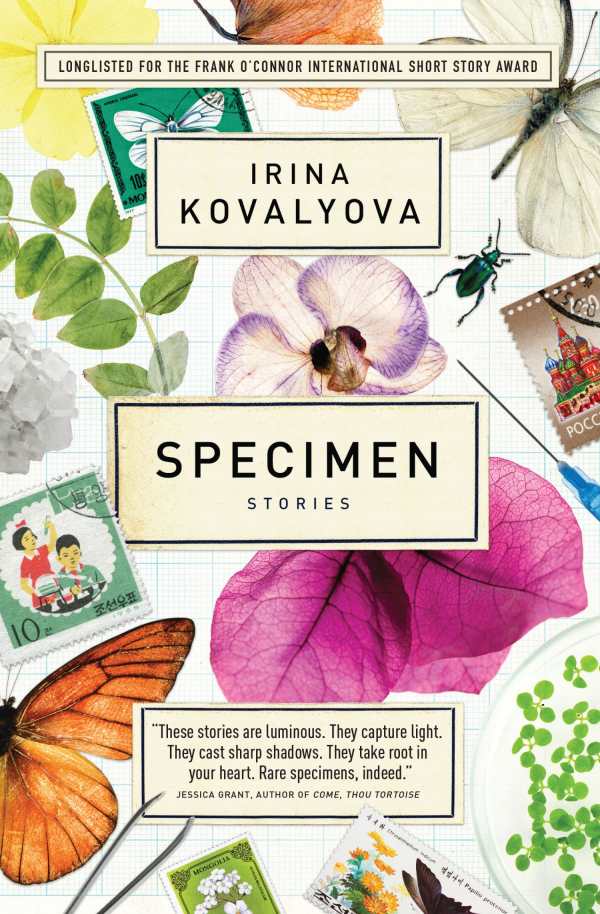Specimen
The facts of sex and inheritance cannot explain away human emotion in this strong, science-themed story collection.
“People like to pretend that our genes define the truth for us. But I assure you that’s not the case,” a character insists in the title story from biochemistry lecturer Irina Kovalyova’s first book, Specimen. Diverse in setting and form, these nine stories, long-listed for the Frank O’Connor International Short Story Award, contrast the scientific understanding of genetics with deeper wisdom about the bonds of love and family.
In “Mamochka,” a physics archivist comes to terms with her daughter’s interracial baby, while in “Gonos,” a biology lecturer realizes his obsession with fruit-fly genetics has distanced him from his only son. Joy, the protagonist of “Specimen,” is dismayed to learn that her biological father was a sperm donor; in “The Side Effects,” Paula gets Botox injections to eliminate wrinkles, a metaphor for numbing feelings rather than dealing with them.
Divided equally between first- and third-person perspectives, the stories often employ unusual structures. For instance, “Gdańsk,” about post-Soviet cultural exchanges, is a numbered list; “The Big One,” an apocalyptic tale of a mother and daughter trapped by an earthquake, splits into two columns: on the left is what’s happening; on the right are the mother’s thoughts and sustaining memories. The standout, “Peptide p,” resembles an academic paper—with an abstract, figures, and appended interviews with parents whose young children survived an epidemic of “heart break disease.”
Novella-length “The Blood Keeper” is the fullest expression of Kovalyova’s recurring themes of sex and family inheritance. Vera, a Russian botanist on a North Korean exchange, embarks on a forbidden love affair, and, against a backdrop of Darwinism and the smuggling of drugs and dissenters, has to protect what she most values. Too much plot is crammed into the final section, though; this one is worth expanding into a full-length novel.
Nestling science into rich psychological narratives, Kovalyova’s work is reminiscent of that of Andrea Barrett and A. S. Byatt; in fact, the latter is directly referenced in one story. Kovalyova also channels Anthony Marra and Adam Johnson by affirming love’s survival in spite of repressive situations.
Reviewed by
Rebecca Foster
Disclosure: This article is not an endorsement, but a review. The publisher of this book provided free copies of the book to have their book reviewed by a professional reviewer. No fee was paid by the publisher for this review. Foreword Reviews only recommends books that we love. Foreword Magazine, Inc. is disclosing this in accordance with the Federal Trade Commission’s 16 CFR, Part 255.

